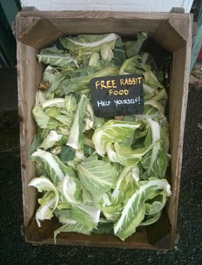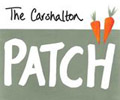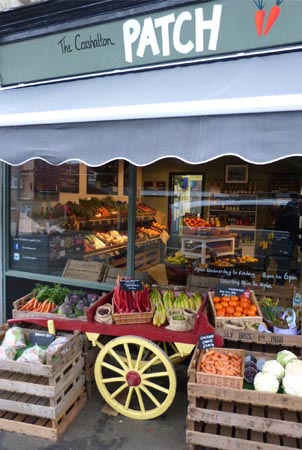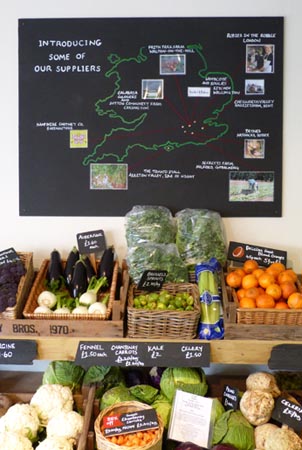Case study of The Carshalton Patch, a shop on Gordon Road in Carshalton, Surrey, run by Mark Caswell, which specialises in selling locally-produced fruit and vegetables. In addition to seasonal, fresh produce, the shop also offers other locally-made products such as oils, preserves and condiments.
The Carshalton Patch: background and core values
After moving to Carshalton Village, Mark was impressed by the strength of community spirit in the area. The Carshalton Patch was founded with this community spirit in mind and to offer a way for local people to buy good quality, fresh produce, which doesn’t have excessive packaging and doesn’t necessarily conform to fussy cosmetic standards that all too often cause perfectly good food to be wasted.
The Carshalton Patch began life as a weekly stall on a Saturday outside a local art gallery. It moved into its current premises in June 2013, from where it works to support local communities, growers and producers and provides "a convenient, approachable place for the community to buy fresh fruit and vegetables and local produce". Mark really cares about doing all that he can to reduce the impact that the business has on the environment, and minimising waste is central to this concern.
How The Carshalton Patch minimises waste
The Carshalton Patch is already doing a great deal to keep waste to an absolute minimum. During the winter months, the shop naturally runs around fridge temperature and waste levels are very low. Over the warmer periods of the year, the shop is sometimes left with surplus fruit and vegetables that haven’t been sold. To combat the potential surplus that can be caused by fluctuations in sales and unpredictable weather, the business has employed lots of helpful tactics to keep the levels of food waste as low as possible.
The shop has a good relationship with a local pub, The Sun. Each Saturday, Mark calls the chef at around 4pm to tell him what produce is leftover and the chef usually takes about two thirds of it to use in the pub’s kitchen.
Near-expiry stock is put into the “bargain bin” and spare leaves from vegetables such as cauliflowers are offered to customers as "free rabbit food" (see photograph below). Customers are encouraged to take these trimmings and use them in any way they choose. The shop makes sure that records are kept, detailing the types of produce that are put into the bargain bin and how much is thrown away in order to improve stock control even further in the future. When there is still food left over after these measures, Mark takes home as much as possible to be composted.

Cardboard waste from deliveries is recycled, but the business hopes to invest in a compactor, which would reduce the need for recycling collections and result in a reduction of emissions from transportation. Wooden crates are reused as much as possible – some are used for the shop’s veg boxes, and some are used Sutton Community Farm, whose staff regularly collect 50-60 crates from the shop’s garage to use for their own veg boxes.
The Carshalton Patch has plans for the future, which would enable it to reduce waste even further, such as the potential installation of an on-site composting facility. There is also the possibility of working with local businesses to process surplus produce into packaged foods that could be sold locally.
Contact: The Carshalton Patch, Website: www.thecarshaltonpatch.com Twitter: @CarshaltonPatch
This case study has been prepared by Sustain: The alliance for better food and farming, as part of the FoodSave project, helping small- and medium-sized enterprises to reduce food waste. If you run a small food business in London and want help reducing your food waste, please get in touch. Email: charlotte@sustainweb.org; tel: 0203 5596 777; web: www.sustainweb.org/foodsave/

FoodSave is funded by the European Regional Development Fund (ERDF), the London Waste and Recycling Board (LWARB) and the Mayor of London, co-ordinated by the Greater London Authority (GLA) and supported by the London Food Board.
Food Waste: Sustain supports a reduction in food surplus, loss and waste.



